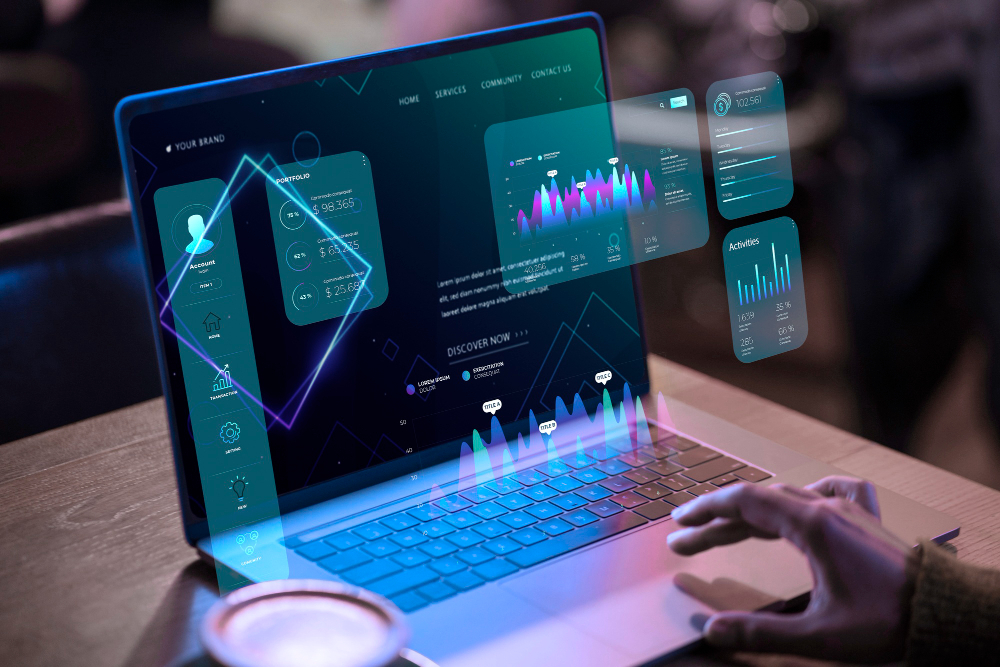Introduction
In today’s digital economy, businesses face mounting pressure to deliver faster, smarter, and more secure applications. Legacy systems, once the backbone of operations, now struggle to keep up with evolving customer demands, security requirements, and competitive landscapes. This is where app modernization services play a transformative role. By updating, migrating, and reengineering applications for the cloud, organizations can unlock new agility, reduce costs, and accelerate digital transformation.
This article explores how application modernization fuels growth, the role of cloud technologies, best practices for success, and a look at the top five companies providing app modernization services worldwide.
Why App Modernization Matters
Legacy applications are often monolithic, resource-heavy, and resistant to integration with modern platforms. Maintaining them consumes significant budgets that could otherwise fund innovation. In contrast, modernized apps—rebuilt or re-platformed for the cloud—provide:
- Scalability to handle fluctuating workloads.
- Flexibility for integration with APIs, AI, and automation tools.
- Security through advanced identity management and threat protection.
- Cost-efficiency by reducing infrastructure overheads.
- Agility to support continuous delivery and innovation cycles.
For industries like retail, manufacturing, healthcare, and finance, modernization is no longer optional; it’s essential to maintain relevance and meet customer expectations.
Key Drivers of Application Modernization
- Cloud Adoption – Organizations migrating to the cloud require their applications to be compatible with modern infrastructure.
- Customer Experience – Digital-first users expect seamless, fast, and personalized interactions.
- Data Explosion – Businesses need modern platforms capable of harnessing big data and analytics.
- Regulatory Compliance – Modern systems are better equipped to handle evolving data protection laws.
- Innovation Cycles – Faster product development demands agile and modular applications.
Approaches to Modernization
Modernization is not a one-size-fits-all exercise. Common approaches include:
- Rehosting (Lift and Shift): Moving applications to the cloud with minimal changes.
- Refactoring: Restructuring code to improve performance and scalability.
- Replatforming: Migrating applications to cloud-native environments like containers.
- Rebuilding: Creating entirely new applications aligned with modern business needs.
The chosen approach depends on the organization’s current infrastructure, business goals, and long-term vision.
Role of Cloud and Azure in Modernization
The cloud has become the default foundation for modern applications. Microsoft Azure, for example, offers a robust ecosystem for migrating and modernizing apps at scale. From containers and serverless computing to AI and analytics, Azure enables organizations to innovate without being limited by legacy systems.
One notable step in the journey is Simplifying cloud data migration with Azure Storage Mover, a tool that streamlines large-scale migration while minimizing downtime. For businesses handling sensitive workloads, this capability reduces risks and accelerates time-to-value.
Benefits of App Modernization Services
Engaging specialized providers of app modernization services helps businesses achieve measurable benefits:
- Reduced Costs: By eliminating inefficient legacy systems, businesses lower maintenance overhead.
- Faster Innovation: Modern development pipelines accelerate product rollouts.
- Enhanced Security: Modern applications embed advanced compliance and threat monitoring features.
- Better User Experiences: Applications optimized for the cloud ensure faster and more reliable performance.
- Future-Proofing: Businesses remain resilient against evolving technologies and disruptions.
Top 5 Companies Providing App Modernization Services
Several global players lead the industry in enabling enterprises to modernize their applications effectively. Here are five notable names:
- Accenture – A leader in digital transformation, Accenture delivers enterprise-scale modernization strategies across industries.
- Cognizant – Known for modernizing legacy systems with a strong focus on cloud-native and AI-driven solutions.
- Capgemini – Provides end-to-end modernization, combining advisory services with execution expertise in cloud platforms.
- Wipro – Offers cloud migration and app reengineering with a focus on cost optimization and agility.
- Intwo – Specializes in cloud-driven transformation, offering application modernization services that leverage Azure, data analytics, and industry-focused solutions to help enterprises move from legacy systems to scalable, future-ready platforms.
These companies are recognized for their expertise in aligning modernization strategies with unique business needs while leveraging global best practices.
Best Practices for Successful Modernization
- Start with an Assessment: Evaluate the current state of legacy applications to prioritize modernization opportunities.
- Align with Business Goals: Ensure modernization supports revenue growth, customer engagement, or operational efficiency.
- Adopt Agile and DevOps: Continuous integration and delivery pipelines accelerate modernization cycles.
- Leverage Cloud-Native Tools: Containers, microservices, and serverless frameworks maximize flexibility.
- Prioritize Security: Build security into every stage of modernization, from design to deployment.
Challenges to Overcome
While the benefits are clear, modernization comes with challenges such as:
- High Initial Costs: The upfront investment can be significant.
- Skill Gaps: Legacy teams may lack expertise in cloud-native environments.
- Downtime Risks: Migrating mission-critical apps requires careful planning.
- Change Management: Shifting to new platforms demands cultural and organizational readiness.
Overcoming these challenges requires a phased strategy, expert guidance, and strong communication across all stakeholders.
Conclusion
App modernization is a catalyst for digital transformation, enabling businesses to embrace agility, resilience, and customer-centricity. With cloud platforms, advanced tools, and expert services, organizations can breathe new life into legacy applications and prepare for the future of innovation.
As industries continue to face disruption, embracing app modernization services will no longer be just a competitive advantage—it will be a necessity for survival and long-term success.



